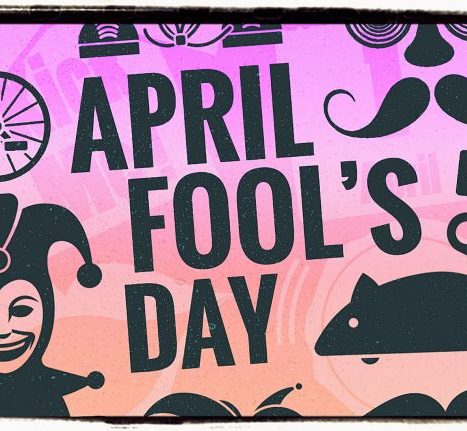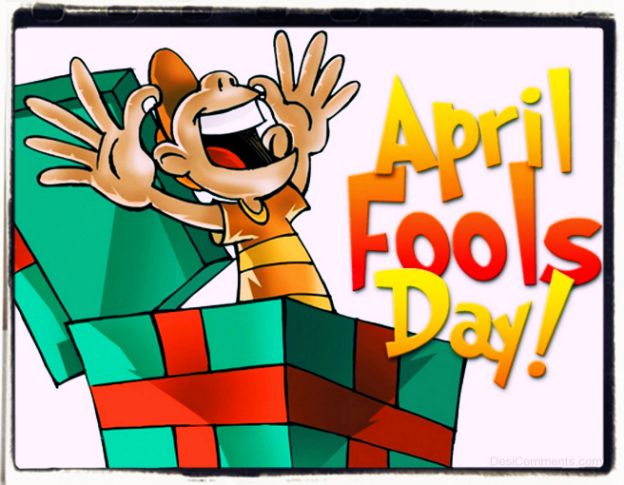
April fools day or all fools day, the first day of April when it is customary to play practical jokes on people, causing them to believe something that isn’t true or to go on a fruitless errand. its origin, story, curiosities and examples.
April is the cruellest month, breeding
Lilacs out of the dead land, mixing
Memory and desire, stirring
Dull roots with spring rain.
Winter kept us warm, covering
Earth in forgetful snow, feeding
A little life with dried tubers.
T.S. Eliot
Sweet April showers, do spring May flowers.
English proverb
April comes in with his hack and his bill, And sets a flower on every hill.
English proverb
An April flood carries away the frog and her brood.
English proverb
April weather, Rain and sunshine, both together.
English proverb
En avril, ne te découvre pas d’un fil.
French Proverb
Aprile, apriletto, tutti i giorni un goccetto!
Italian proverb
April macht was er will.
German proverb
Abril lluvioso hace a mayo hermoso.
Spanish proverb
April, fourth month of the Gregorian calendar year. It has 30 days. The Romans gave this month the name Aprilis, derived from aperire (“to open”), probably because it is the season when buds begin to open; it was called Eostre (Easter) month by the Anglo-Saxons. Playing tricks on the first day of April is a custom among European peoples.
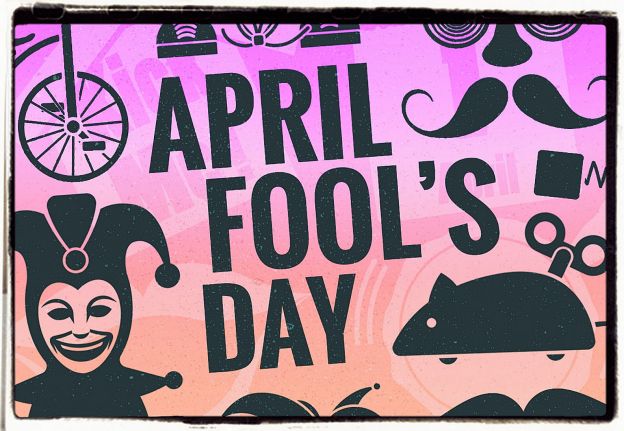
On April 1st you will probably be on the look-out for any possible practical jokes. If your colleagues tell you to do something slightly unusual, you might think twice before doing it. Millions of people the world over will be in a similar position. The Indians will, however, have completed their entertainment a day earlier: their Huli festival takes place on March 31st. If you do have the misfortune to be made an April fool, then you might like to take some comfort from considering the origins of this bizarre custom.
April Fools’ Day or All Fools’ Day, the first day of April. On this day it is customary to play practical jokes on people, causing them to believe something that isn’t true or to go on a fruitless errand. Although the origin of the custom is unknown, a common theory is that it developed as part of ancient spring festivals. April Fools’ Day jokes are generally amusing but harmless. For example, someone may give a friend the telephone number of the zoo, telling her to return a call from “Mr. Fox.”
The origins of April Fools’ Day are not certain, although several theories have been proposed. Before the adoption of the Gregorian calendar in 1582, the New Year was celebrated between March 25 (the old date of the spring equinox) and April 1. One of the most credited hypotheses is that, as a result of the change of calendar, not everyone got used to the change and were then referred to as the “April fools”. Hence the burlesque origin of April 1.
In Europe, the festivities of the first of April became customary around the end of 1500: a few years after the adoption of the new Gregorian calendar. In the France of King Charles IX and in the Germany of the Habsburgs, the tradition gets under way and then spreads in England (in the eighteenth century) and in the other European states.
Legend has it that many French, opposed to this change or simply careless, continued to exchange gifts between March and April, celebrating the New Year as in the old days. Pranksters began to mock them, delivering them absurd or empty gifts during non-existent parties. In the empty gift you could find a card with the words poisson d’avril: April Fool’s Day, in French.
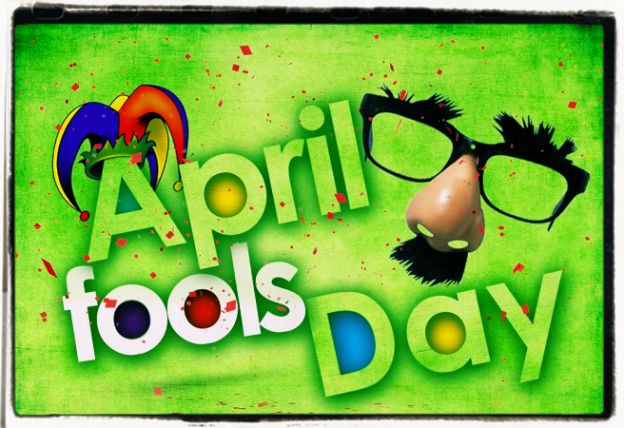
Poisson d’avril, or pesce d’Aprile in Italian, yeah, but what does fish have to do with it? There’s an explanation for that, too, and it’s that fish are easily hooked. How the victims of pranks “bite” easily to tease. It must be said, however, that sometimes it is really difficult not to fall for it: also because the imagination has no limits and the pranks do not even, in fact they can pass from the classrooms of schools, playgrounds, television and websites.
In Italy the custom of 1 April is recent: it dates back to the years between 1860 and 1880. The first city to welcome the French habit was Genoa, where the passion for April jokes landed in its lively port. The tradition was rooted first among the middle and upper classes, then took root among the rest of the population.
Therefore April 1 is recognized as a day for pranks in Germany, France, Great Britain, the United States, Canada, and elsewhere. In India, the last day of the feast of Huli, March 31, is regarded as a day for mischief. In France, an April fool’s prank is called a poisson d’Avril (April fish), and in Scotland it is an April gowk or cuckoo. In the UK, jokes and tricks can be played up until noon on 1 April. After midday it’s considered bad luck to play a trick. Anyone who forgets this and tries a joke in the afternoon becomes an ‘April Fool’ themselves.
Some newspapers, TV channels and well-known companies publish false news stories to fool people on 1 April. One of the earliest examples of this was in 1957 when a programme on the BBC, the UK’s national TV channel, broadcast a report on how spaghetti grew on trees. The film showed a family in Switzerland collecting spaghetti from trees and many people were fooled into believing it, as in the 1950s British people didn’t eat much pasta and many didn’t know how it was made!
A few years ago, for example, the famous English astronomer and radio host Patrick Moore announced instead that an exceptional alignment of Pluto and Jupiter planned for 9:47 on the morning of April 1 would have canceled the effects of Earth’s gravity, and all the inhabitants of the planet would start floating like astronauts in space!
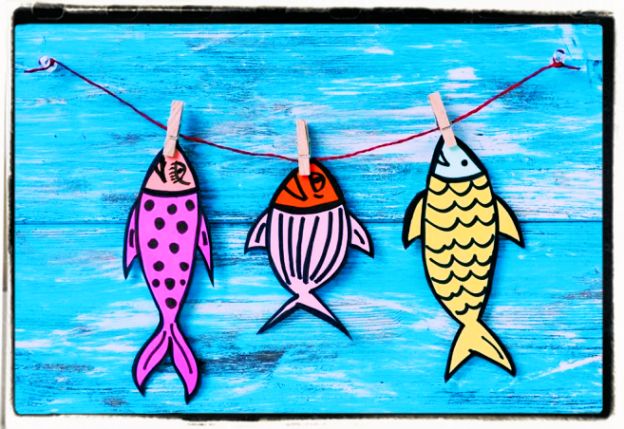
Most British people wouldn’t fall for the spaghetti trick today, but in 2008 the BBC managed to fool their audience again with their Miracles of Evolution trailer, which appeared to show some special penguins that had regained the ability to fly. Two major UK newspapers, The Daily Telegraph and the Daily Mirror, published the ‘important story’ on their front pages. The gullible British swallowed it, as they say, “hook, line and sinker”.
So, what kind of jokes do people play? Well, a simple example would be telling your friend that their shoelaces are undone. Then, when they bend down to do them up, you shout, ‘April Fool!’, and they realise their shoelaces are fine. Maybe it’s not your kind of humour, but watch out, there’s always someone who will find it hilarious! In Ireland, a popular prank is to send someone on a ‘fool’s errand’.
The victim is sent to deliver a letter, supposedly asking for help. When the person receives the letter, they open it, read it and tell the poor messenger that they will have to take the letter to another person. This continues and the victim ends up taking the message to several different people until someone feels sorry for them and shows them what the letter says: ‘Send the fool to someone else.’
April Fool’s Day fans say it encourages fun and laughter, and one study found that it reduces stress and therefore could be good for your heart. Other people point out that it can have negative consequences, like confusion, worry or wasting time and resources. In France, Belgium, the Netherlands, Italy and French-speaking areas of Canada and Switzerland, the 1 April tradition is known as the ‘April Fish’. A common joke is to try to stick a paper fish onto a victim’s back without being noticed.
The origins of the April fools joke are somewhat obscure. The first references in English literature are to be found in the seventeenth century. It would appear that there was some connection between the April fool and the first cuckoo. The victims of such jokes were referred to as “April gowks”: this is a northern dialect word which means cuckoo. The gowk, or cuckoo, was the unfortunate person who was sent on a false errand. The English even had a proverb for the occasion: “First of April, hunt the gowk. You may send a fool whither you will”.
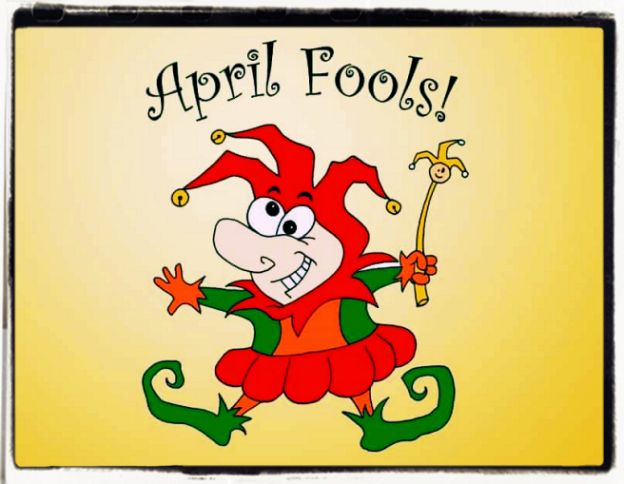
In modern times the advent of the telephone has added a new dimension to the false errand. One April 1st back in the 1950’s a Mr. Fox arrived at work and found a message on his desk telling him to ring Primrose 2323 in order to speak to a Mr. Lion. When Mr. Fox dialled the number and asked to speak to the fictitious Mr. Lion, he was surprised to find that he had rung London Zoo. A spokesperson for Dublin Zoo said staff had lost their sense of humour’ after they received more than 100,000 calls asking for invented names such as Mr C Lyons, Anna Conda and G Raffe! The callers were victims of a phone hoax, who contacted the zoo after receiving a text message encouraging them to make the call.
The fact that April is the month in which such pranks are played undoubtedly has something to do with the change of season. The first of April marks the arrival of spring: this causes many people to indulge in folly, romantic or otherwise. It is perhaps not surprising that April 1st has seen practical jokes of a romantic nature. William Congreve’s play, “The Old Bachelor” (1693), tells the story of “one of love’s april fools.” Heartwell, an aging woman-hater”, falls in love with Silvia, the mistress of another. The hapless” Heartwell is fooled into marrying her and thus becomes the laughing-stock of all his friends.
A charming classical reference to April fools can be found in the Reverend Brewer’s “Dictionary of Phrase and Fable”, originally published in 1870. Brewer tells the mythological tale” of Proserpina and Pluto, god of the underworld. Legend has it that Proserpina was picking daffodils in the Elysian meadows one April morning when Pluto suddenly appeared. He promptly carried her off to the underworld where he made her his queen. Proserpina’s mother, Ceres (the goddess of core, appropriately enough) heard her daughter’s cries and went in search of her echo. But her search was in vain: Ceres went on “a fool’s errand”.
Brewer examines other explanations of the origins of April fools. There is one theory that it may originate from the mockery trial of Jesus in which he was sentenced to death by Pontius Pilate: there is certainly a connection with April as the trial occurred a few days before Easter. I am happy to say that Brewer rejects this theory as unconvincing.
On April Fool’s Day 1998, the American hamburger chain Burger King announced that it had created a left-handed hamburger. The advert for the ‘new product’ explained that all the ingredients had been rotated 180 degrees so that it was more comfortable for left-handed people to pick up and eat. The following day, Burger King admitted that this advertisement had been a hoax, but said that thousands of customers had gone to restaurants across the USA asking for a left-handed burger.
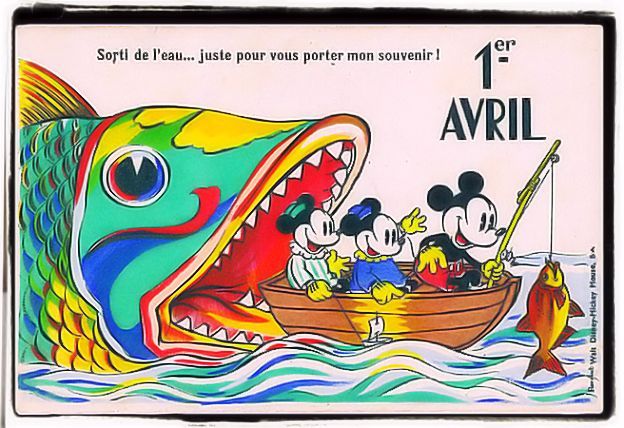
Whatever the origins of April fools, its character has undoubtedly changed in modern times. In the first place, it has lost its romantic element. Nowadays amorous pranks are played on February 14th when lovers, prospective lovers and mere saboteurs send anonymous Valentine cards. Secondly, people are becoming less susceptible to practical jokes. As early as 1842 a certain General Thompson warned of the dangers of mass literacy: “It will be difficult to make April fools of a whole people that can read and write.”
It is ironic that the age of telecommunications, which has increased the possibilities of practical jokes, has also increased people’s insensitivity to them. After the great success of the spaghetti documentary there followed a spate of television and newspaper hoaxes in Britain on April 1st.
Even the British got the hang of it after a while: last year’s April 1st documentary, in which the B.B.C. announced that St. Paul’s Cathedral was to be dismantled brick by brick and moved to the countryside, was something of a flop. If you want a practical joke to work in the 1980’s, it is better to organise it on another day.
As we have seen, in France, as in Italy, the expression poisson d’avril is used. In English-speaking countries, such as the United Kingdom and America, instead, it is called April fool’s day (“The Day of the April fool”), where the term “fool” reminds the Fool, the jester of the medieval courts, thus emphasizing the playful connotation of the party. Finally, in Germany, Aprilscherz is more simply the “April Prank”.
In the Highlands of Scotland the April Fool lasts two days, in the second, the Taily Day, you enjoy to attach on the back of the unlucky (fools or gawls) a sign with the words “Kick me!” (Give me a kick). In Portugal, the days dedicated to pranks are Sunday and Monday before Lent, in which whole packs of flour are thrown on friends! India also has its April Fools’ Day. However, it falls a day earlier, on March 31. On that date we celebrate the Huli festival to celebrate spring and make fun of everyone.

But some people have always had a tendency to suspect any information that is given on April 1st. In 1964, for example, there was a boat strike in Venice on the day in question. A group of perceptive Dutch tourists were at first amused and later angered by this news. Yes, it was a very funny joke, but there was no need to keep it up the whole day. In fact the strike was genuine. It was a cruel twist of fate that of all the days of the year in which the Venetians could organise a boat strike, they chose April fools day.
Everywhere, in Europe and around the world, April 1 is still celebrated a little Carnival! What’s more in the era of ‘fake news’ it’s often hard on a normal day of the year to work out when we’re being tricked into believing something that isn’t true, but on April Fool’s Day you need to be even more alert. No one knows exactly how the tradition started, but there are plenty of people who enjoy this light-hearted day and are happy to keep the tradition alive.

